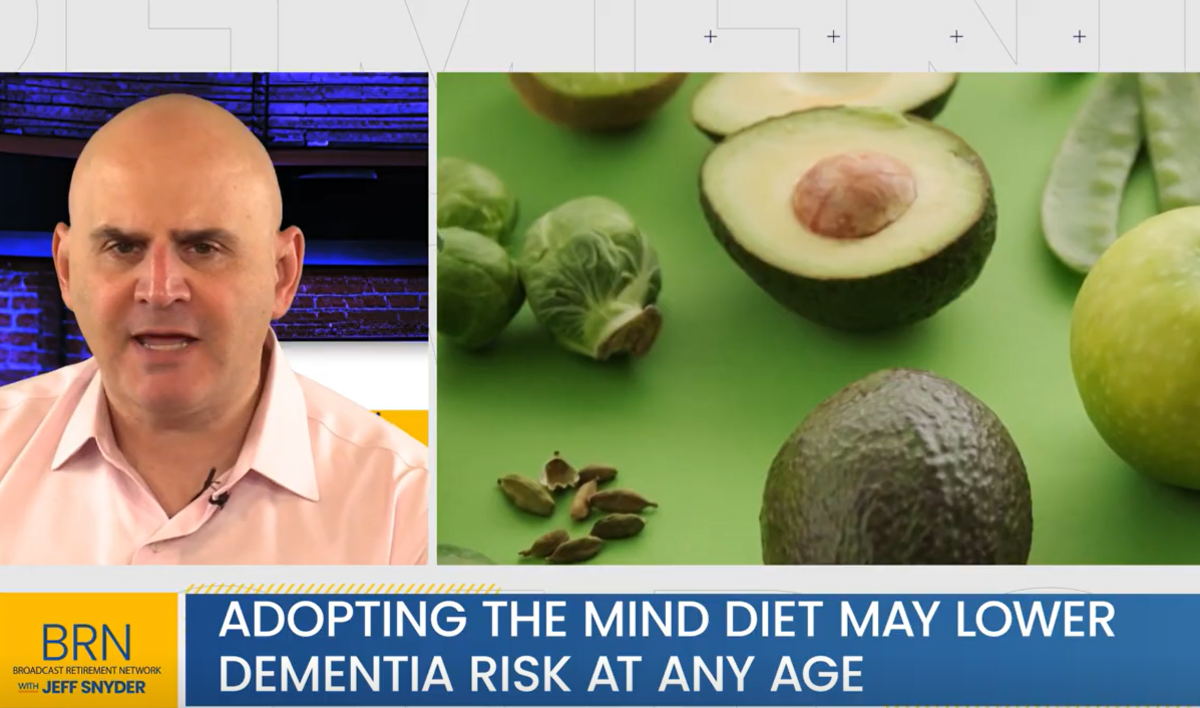
News
November 03, 2025
Adopting the MIND Diet May Lower Dementia Risk at Any Age
Broadcast Retirement Network's Jeffrey Snyder discusses how lifestyle and diet can lower your dementia risk with Tuft University's Sarah L. Booth, PhD. Jeffrey H. Snyder, Broadcast Retirement Network This morning on BRN, adopting the MIND diet may reduce dementia risk at any age. Joining me ...
## Adopting the MIND Diet May Lower Dementia Risk at Any Age
This morning on Broadcast Retirement Network (BRN), a fascinating discussion unfolded regarding the power of diet in protecting cognitive health. Jeffrey Snyder, host of BRN, spoke with Sarah L. Booth, PhD, from Tufts University, about the potential benefits of the MIND diet in reducing the risk of dementia, even later in life.
The conversation centered on the MIND diet, a dietary pattern that combines elements of the Mediterranean diet and the DASH (Dietary Approaches to Stop Hypertension) diet. It’s specifically designed to benefit brain health. Dr. Booth explained that the MIND diet emphasizes the consumption of certain foods known to support cognitive function, while limiting others that may contribute to cognitive decline.
Snyder highlighted the growing concern surrounding dementia, particularly as the population ages. He emphasized the importance of proactive measures individuals can take to safeguard their brain health. Dr. Booth concurred, stressing that lifestyle factors, especially diet, play a significant role in determining an individual's risk of developing dementia.
The MIND diet prioritizes ten brain-healthy food groups: green leafy vegetables, other vegetables, nuts, berries, beans, whole grains, fish, poultry, olive oil, and wine (in moderation). Conversely, it advises limiting the intake of red meat, butter and margarine, cheese, pastries and sweets, and fried or fast food.
While the exact mechanisms are still being studied, researchers believe the MIND diet's benefits stem from the combination of antioxidants, anti-inflammatory compounds, and healthy fats found in the recommended foods. These nutrients are thought to protect brain cells from damage and promote healthy blood flow to the brain.
One of the most encouraging aspects of the discussion was the idea that adopting the MIND diet can be beneficial at any age. While starting earlier in life is always advantageous, Dr. Booth suggested that even those in their 60s, 70s, or even older can experience positive effects on their cognitive health by making dietary changes.
The BRN segment served as a valuable reminder that individuals have the power to influence their own health outcomes. By embracing a brain-healthy lifestyle, including adopting the MIND diet, we can potentially reduce our risk of dementia and enjoy a higher quality of life as we age. The interview concluded with a call to action, urging listeners to learn more about the MIND diet and consider incorporating its principles into their daily lives.
This morning on Broadcast Retirement Network (BRN), a fascinating discussion unfolded regarding the power of diet in protecting cognitive health. Jeffrey Snyder, host of BRN, spoke with Sarah L. Booth, PhD, from Tufts University, about the potential benefits of the MIND diet in reducing the risk of dementia, even later in life.
The conversation centered on the MIND diet, a dietary pattern that combines elements of the Mediterranean diet and the DASH (Dietary Approaches to Stop Hypertension) diet. It’s specifically designed to benefit brain health. Dr. Booth explained that the MIND diet emphasizes the consumption of certain foods known to support cognitive function, while limiting others that may contribute to cognitive decline.
Snyder highlighted the growing concern surrounding dementia, particularly as the population ages. He emphasized the importance of proactive measures individuals can take to safeguard their brain health. Dr. Booth concurred, stressing that lifestyle factors, especially diet, play a significant role in determining an individual's risk of developing dementia.
The MIND diet prioritizes ten brain-healthy food groups: green leafy vegetables, other vegetables, nuts, berries, beans, whole grains, fish, poultry, olive oil, and wine (in moderation). Conversely, it advises limiting the intake of red meat, butter and margarine, cheese, pastries and sweets, and fried or fast food.
While the exact mechanisms are still being studied, researchers believe the MIND diet's benefits stem from the combination of antioxidants, anti-inflammatory compounds, and healthy fats found in the recommended foods. These nutrients are thought to protect brain cells from damage and promote healthy blood flow to the brain.
One of the most encouraging aspects of the discussion was the idea that adopting the MIND diet can be beneficial at any age. While starting earlier in life is always advantageous, Dr. Booth suggested that even those in their 60s, 70s, or even older can experience positive effects on their cognitive health by making dietary changes.
The BRN segment served as a valuable reminder that individuals have the power to influence their own health outcomes. By embracing a brain-healthy lifestyle, including adopting the MIND diet, we can potentially reduce our risk of dementia and enjoy a higher quality of life as we age. The interview concluded with a call to action, urging listeners to learn more about the MIND diet and consider incorporating its principles into their daily lives.
Category:
Politics